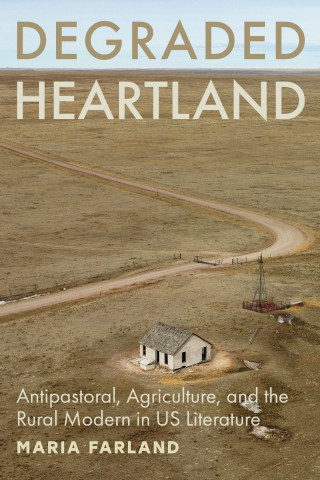
Reviews
Drawing on extensive archival work on four continents, Rudy’s vibrant investigative study moves deftly among the colonial poetries of Australia, Canada, South Africa and New Zealand, with particular emphasis on the first two, and finds fascinating examples of direct copying, echoic referencing and inventive reconstruction of British verse techniques in such diverse media as shipboard newspapers, colonial anthologies, exhibition performances and individual collections.
Writing with erudition and depth and in an engaging, accessible style, Rudy brings poets such as Australian Henry Kendall and Canadian Isabella Valancy Crawford, long dismissed by "commonplace assumptions about colonial derivativeness" (chapter 1), into world literature.
Imagined Homelands presents a compelling reappraisal of nineteenth-century colonial poetry... [Rudy's] vision of colonial poetry as a simultaneously migratory and emotionally tethering form is itself appealingly poetic... Imagined Homelands has much to offer readers with an interest in form and affect as well as to scholars with specific interests in nineteenth-century colonial culture. The book's exploration of the relationship between poetry and feeling in colonial contexts combines impressive academic rigour with an appealing emotional resonance of its own.
Compelling, gorgeously written, and richly researched, Imagined Homelands is a salvo that could blow open the doors of scholarship on nineteenth-century poetry. No reader will leave this book without a clear sense of how his or her understanding of nineteenth-century poetry has been forever enlarged and enriched.
An important, meticulously researched, and deeply learned contribution to the study of empire, poetry, and British colonialism in the nineteenth century, Imagined Homelands charts its own new and very original territory.
Drawing on neglected archives of remarkable range—both geographical and formal—Imagined Homelands explores the power of poetry in shaping individual and collective identity among settlers struggling to forge a sense of home in unfamiliar lands. This is a fascinating account of both poetry and British colonialism.
In this groundbreaking study, Jason Rudy throws new light on the place of poetry in Britain’s colonies. Compellingly, Rudy shows literature helped shape colonial attitudes and practices. It is a brilliant piece of scholarship that makes us rethink our views about cultural reproduction, and the social and political work that genre performs.
Book Details
Acknowledgments
Introduction
1. Floating Worlds
2. Colonial Authenticity
3. Sounding Colonial
4. Native Poetry
5. Colonial Laureates
6. The Poetry of Greater Britain
Conclusion
Appendix A
Appendix B
Notes
Bibliog
Acknowledgments
Introduction
1. Floating Worlds
2. Colonial Authenticity
3. Sounding Colonial
4. Native Poetry
5. Colonial Laureates
6. The Poetry of Greater Britain
Conclusion
Appendix A
Appendix B
Notes
Bibliography
Index






